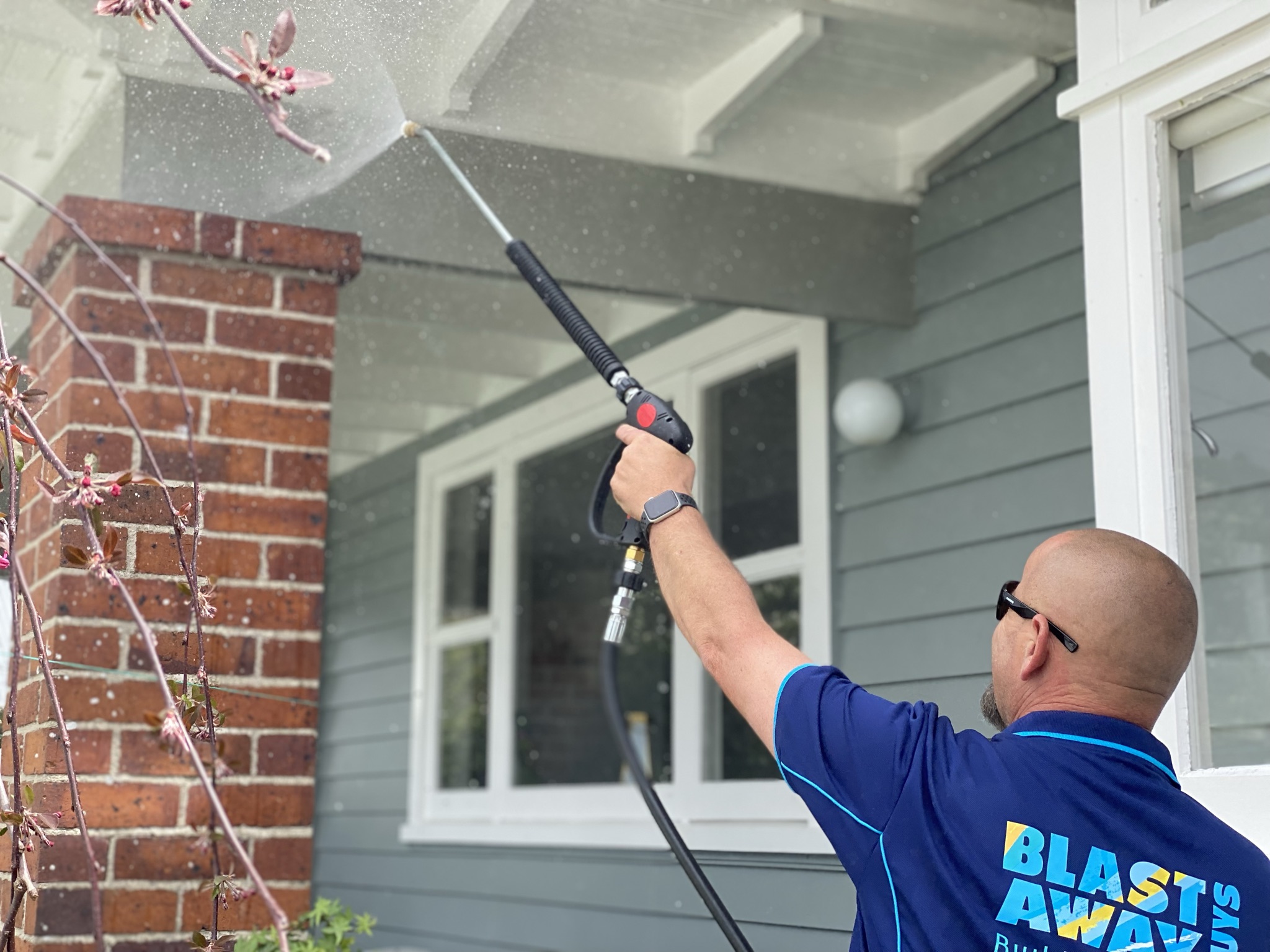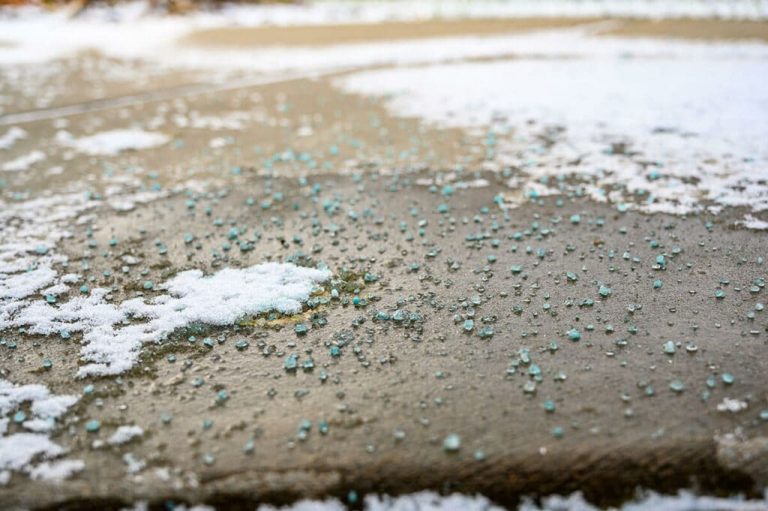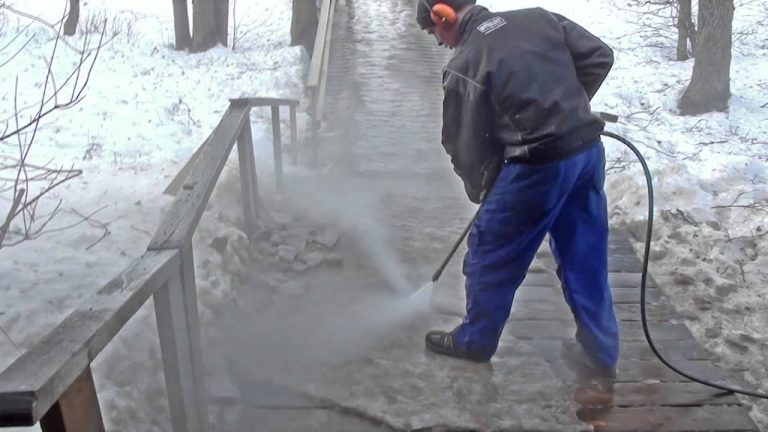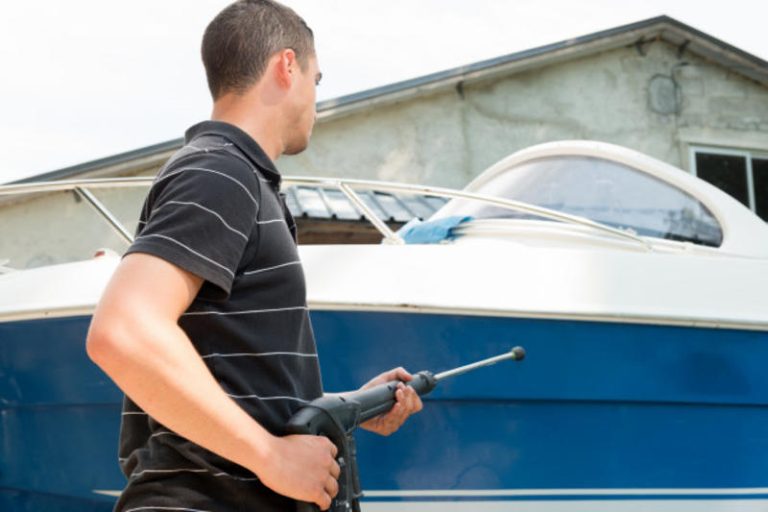
When it’s time to clean your home’s exterior, you may be wondering whether to reach for a powerful pressure washer or opt for something gentler. That’s where soft washing comes in — a cleaning method that’s gaining popularity for its effectiveness and surface-safe approach. So, how do you know if your property needs soft washing instead of traditional power washing?
Let’s break down the key differences, when to use each method, and how to determine which one is right for your specific situation. 🏠🧽
🧼 What Is Soft Washing?
Soft washing is a low-pressure cleaning method that uses specialized solutions — typically containing algaecides, surfactants, and bleach-based cleaners — to break down organic stains like:
- Mildew
- Mold
- Algae
- Lichen
- Dirt and grime
It typically involves a pressure of under 500 PSI, which is about the same as a garden hose. The cleaning solution is applied, allowed to dwell, and then gently rinsed off with water.
🚿 How Is Power Washing Different?
Power washing (often called pressure washing) uses high-pressure water, typically between 1,500 to 4,000 PSI, to blast away dirt, grease, and tough stains. It may or may not involve the use of detergent. It’s most often used for:
- Concrete driveways
- Brick walls
- Heavily soiled decks
- Sidewalks
- Garage floors
The force of the water is what does most of the work in power washing — not the chemicals.
Browse Amazon Here For Top Rated Power Washers And Accessories
🧠 How to Know Which One You Need
Ask yourself the following questions to determine if soft washing is the better option for your cleaning project:
1. What Surface Are You Cleaning?
Some materials are simply too delicate for high pressure:
✅ Soft Washing Recommended For:
- Vinyl siding
- Roof shingles (especially asphalt)
- Painted wood
- Stucco
- Screens
- Outdoor furniture
- Wood fences
- Softer composite decking
🚫 Avoid High-Pressure Power Washing On:
- Roofs
- Delicate painted surfaces
- Windows
- Siding seams
- Decorative trim
High pressure on these surfaces can cause cracks, etching, warping, or water intrusion. 😬
2. Is the Contamination Organic or Inorganic?
Soft washing is especially effective on organic buildup like:
- Black algae streaks on roofs
- Green mildew on siding
- Moldy patio furniture
- Lichen on fences
Power washing is better for inorganic grime, such as:
- Grease/oil stains on concrete
- Chewing gum on sidewalks
- Rust marks
- Dirt buildup on pavers
🌿 If it’s living (algae, moss, mold), soft wash it.
🛢️ If it’s chemical or grime-based, power wash it.
3. Is Appearance or Longevity the Goal?
Soft washing not only cleans but also kills spores that cause regrowth. That means your surfaces stay cleaner longer.
Power washing might remove surface stains, but it doesn’t always get to the root of the problem — especially with mold or mildew.
🌟 If you’re aiming for longer-lasting results, soft washing is often the better option.
4. Are There Nearby Plants or Pets? 🌼🐶
Soft wash solutions can contain bleach or other chemicals, which need to be rinsed properly and handled with care. Responsible professionals will:
- Cover nearby plants
- Wet down landscaping before and after
- Use eco-friendly blends when possible
- Keep pets away from treated areas during and after application
📋 Pros and Cons of Each Method
| Method | Pros | Cons |
|---|---|---|
| Soft Washing | Safe for delicate surfaces, kills mold/algae at root | Can require chemical use and longer dwell time |
| Power Washing | Fast and effective for hard surfaces | Can damage softer materials if misused |
🧰 Professional Tools Used
- Soft Wash Systems: Low-pressure pumps, tanks for solution mixing, long-reach wands
- Power Washers: High-pressure machines with variable nozzles and surface cleaners
Some professional-grade equipment can do both, making the right decision a matter of technique and surface.
Browse Amazon Here For Popular Pressure Washers And Accessories
🛠️ Can You Do Soft Washing Yourself?
You can rent or buy a soft wash system, but most homeowners opt for professionals due to the risk of:
- Mixing chemicals incorrectly
- Applying too much or too little solution
- Not properly rinsing
- Damaging nearby landscaping
🧪 If you’re doing it yourself, always test a small area first.
🎯 Common Scenarios
Here are examples of when soft washing is ideal:
- Roof with black streaks – Algae removal without granule loss
- Vinyl siding in the shade – Mildew killing with no high-pressure risk
- Stucco or EIFS exterior walls – Clean without cracking the surface
- Painted wooden porch – Gentle rinse without stripping the paint
🏁 Final Thoughts
So, how do you know if you need soft washing instead of power washing?
✅ If you’re dealing with delicate surfaces or organic stains like mold or algae — go with soft washing.
✅ If you’re tackling hard surfaces with tough grime — power washing is your go-to.
The best results often come from knowing which method fits the surface, and sometimes even using a combination of both on a property.
When in doubt, consult with a professional who offers both services — and don’t be afraid to ask what they recommend based on your specific cleaning needs. 🧼🧠🌟
Browse Amazon Here For Top Rated Power Washers And Accessories






